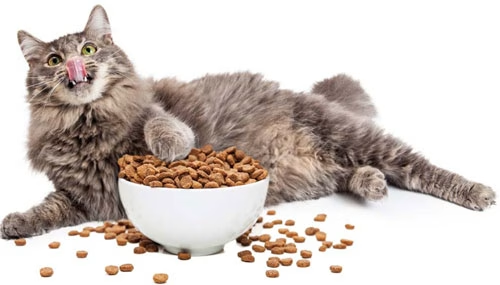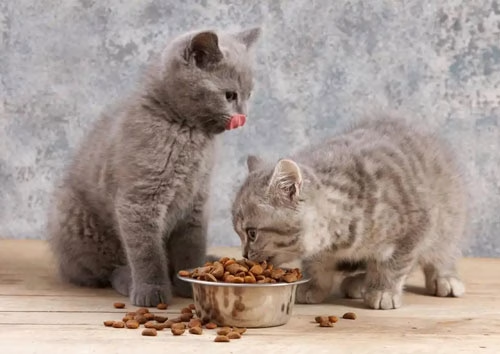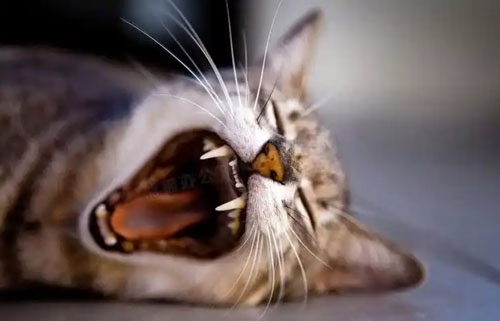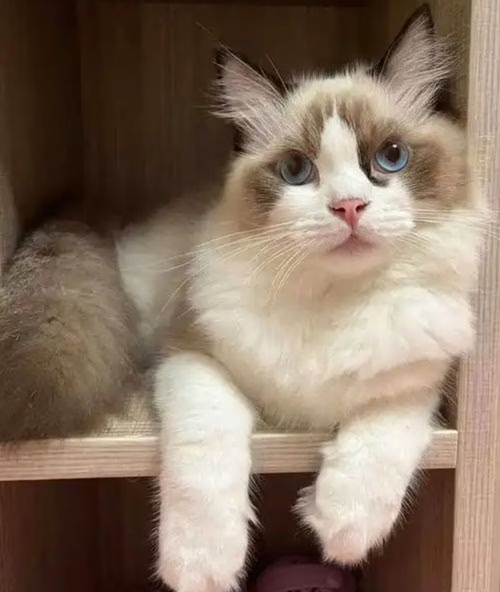Careful owners will check the ingredient list when purchasing cat food. The sodium tripolyphosphate in the ingredient list. It is well known that sodium tripolyphosphate is a commonly used preservative and water retention agent. So, could the presence of sodium tripolyphosphate in cat food affect your cat’s health?
Below we will address the various hearsays about the effects of sodium tripolyphosphate in cat food.
I. Sodium tripolyphosphate can promote digestion and absorption and reduce nutritional waste in cats.
In cat food, sodium tripolyphosphate used is in food grade, it can increase the water holding capacity of cat food, thus improving cats’ appetite and digestion and absorption. (please note it is the commen usages of sodium tripolyphosphate, so it is not only in cat food but alos in all of the food including humans, related article: Sodium tripolyphosphate uses).

Sodium tripolyphosphate is also used in Pickering Complex lotions to improve intestinal health in kittens. Sodium tripolyphosphate may play a role in regulating the stability of emulsions and preventing food ingredients from agglomerating or settling, thus aiding in the absorption and utilization of nutrients in the kitten’s intestinal tract.
Thus, sodium tripolyphosphate plays a role in promoting digestion and absorption, minimizing nutrient waste, and maintaining good weight and body condition in cats. The hearsay is true.
II. Sodium tripolyphosphate reduces the risk of urinary stone formation in cats.
Cats are prone to urinary stones, and the formation of urinary stones is related to the deposition of minerals in the urine. Therefore, there are furphies that sodium tripolyphosphate can combine with minerals to form a complex that is not easy to be deposited, thus reducing the concentration of minerals in the urine, reducing the risk of stone formation, and protecting the urinary tract health of cats.

As a common pet, cats’ urinary tract health has always been a concern. Urinary stones are one of the common diseases in cats that not only cause pain but may also affect their quality of life.
Cat urine is formed through the cat’s kidneys by filtering wastes from the blood, and it is eventually stored in the cat’s bladder. Sodium tripolyphosphate can chelate the minerals in the urine, forming a cyclic complex of phosphate with calcium and magnesium ions. And this complex is soluble in water and therefore does reduce the risk of stone formation from mineral deposits in the urine to some extent. Thus, the hearsay of sodium tripolyphosphate can reduce urnary stone in cats is true.
However, it is important to note that there are many factors that contribute to the formation of urinary stones. Sodium tripolyphosphate works in just one way. Therefore, you should not rely on cat food containing sodium tripolyphosphate as the only means of preventing urinary stones in cats. Ways to prevent urinary stones in cats include: adding water to the food, providing wet food to supplement enough water for cats, avoiding long-term single food for cats to provide balanced nutrition, increasing the amount of exercise for cats, maintaining environmental hygiene, reducing stress for cats, and so on.
III. Sodium tripolyphosphate can prevent urinary tract infections in cats

Urinary tract infections in cats can be caused by a variety of reasons, including: urinary tract bacterial or fungal infections, urinary tract stones, and other systemic diseases caused by the cat’s immune system decline. Since sodium tripolyphosphate can inhibit the growth of microorganisms to a certain extent, and it can prevent urinary tract stones, to some extent, we can assume that sodium tripolyphosphate can prevent urinary tract infections in cats. However, we cannot rely solely on sodium tripolyphosphate as the only means of preventing urinary tract infections in cats. In fact, if a large amount of sodium tripolyphosphate is consumed in excess of the prescribed amount, the damage it causes to the cat’s body (aggravating the burden on the kidneys) will rather outweigh its benefits.
Therefore, ensuring balanced nutrition, adequate exercise and maintaining hygiene in the cat’s living environment are the main means of preventing urinary tract infections in cats. It is not necessary to prevent it by consuming large amounts of cat food containing sodium tripolyphosphate. As you can see, this hearsay is half-true.
IV. Sodium tripolyphosphate to reduce cat dental calculus
Sodium tripolyphosphate can combine with calcium ions in the oral cavity to form soluble complexes, thus reducing the deposition of calcium ions on the surface of the teeth and preventing the formation of dental calculus.

Sodium tripolyphosphate has certain antibacterial properties, which can inhibit the growth of bacteria in the oral cavity and reduce problems such as periodontal disease and stomatitis caused by bacteria.
Sodium tripolyphosphate can regulate the pH value of the oral cavity, creating an acidic environment unfavorable to the formation of dental calculus, thus reducing the formation of dental calculus.
Sodium tripolyphosphate, through its above mentioned functions, can theoretically reduce the attachment of calcium ions on cats’ teeth, reduce the risk of dental calculus and maintain the dental health of cats to a certain extent, so the hearsay is true.
V. Conclusion
The above is the answer to the hearsays about the efficacy of sodium tripolyphosphate in cat food. It can be seen that sodium tripolyphosphate, as an additive in cat food, can play a role in maintaining the moisture of cat food, enhancing the taste, inhibiting the growth of microorganisms, and softening hard water. Derived from this are its effects of promoting digestion and absorption in cats, preventing stones, preventing urinary tract infections, and reducing dental calculus in cats.

We need to have a clear understanding that these derived efficacies, while having a certain degree of authenticity, do not mean that sodium tripolyphosphate can be used as the main factor in the main these efficacies. While we are raising cats, providing cats with a diversified diet, avoiding long-term consumption of a single food, so as to provide adequate and balanced nutrition, and ensure adequate water intake. In addition, adequate exercise, hygienic living environment and regular medical check-ups are the main ways to ensure the health of cats.
In addition, for some cats with kidney disease or already suffering from urinary stones, the intake of sodium tripolyphosphate needs to be carefully controlled to avoid further aggravating the disease. This is because although sodium tripolyphosphate can reduce the risk of urinary stone formation in cats to a certain extent, for cats with impaired kidney function, their metabolism and excretion capacity is reduced, and too much sodium tripolyphosphate may aggravate the burden on the kidneys.
Choose the right cat food product based on your cat’s own condition and your veterinarian’s advice. Veterinarians are able to recommend the most suitable cat food for cats based on their specific health conditions, such as whether they have kidney disease, history of urinary stones, age, weight and other factors. If a cat is at risk for kidney disease or urinary stones, it may be necessary to choose a ration that is low in phosphorus and sodium tripolyphosphate.
So, when choosing cat food, pet owners should carefully check the product label for the amount of sodium tripolyphosphate in it.

